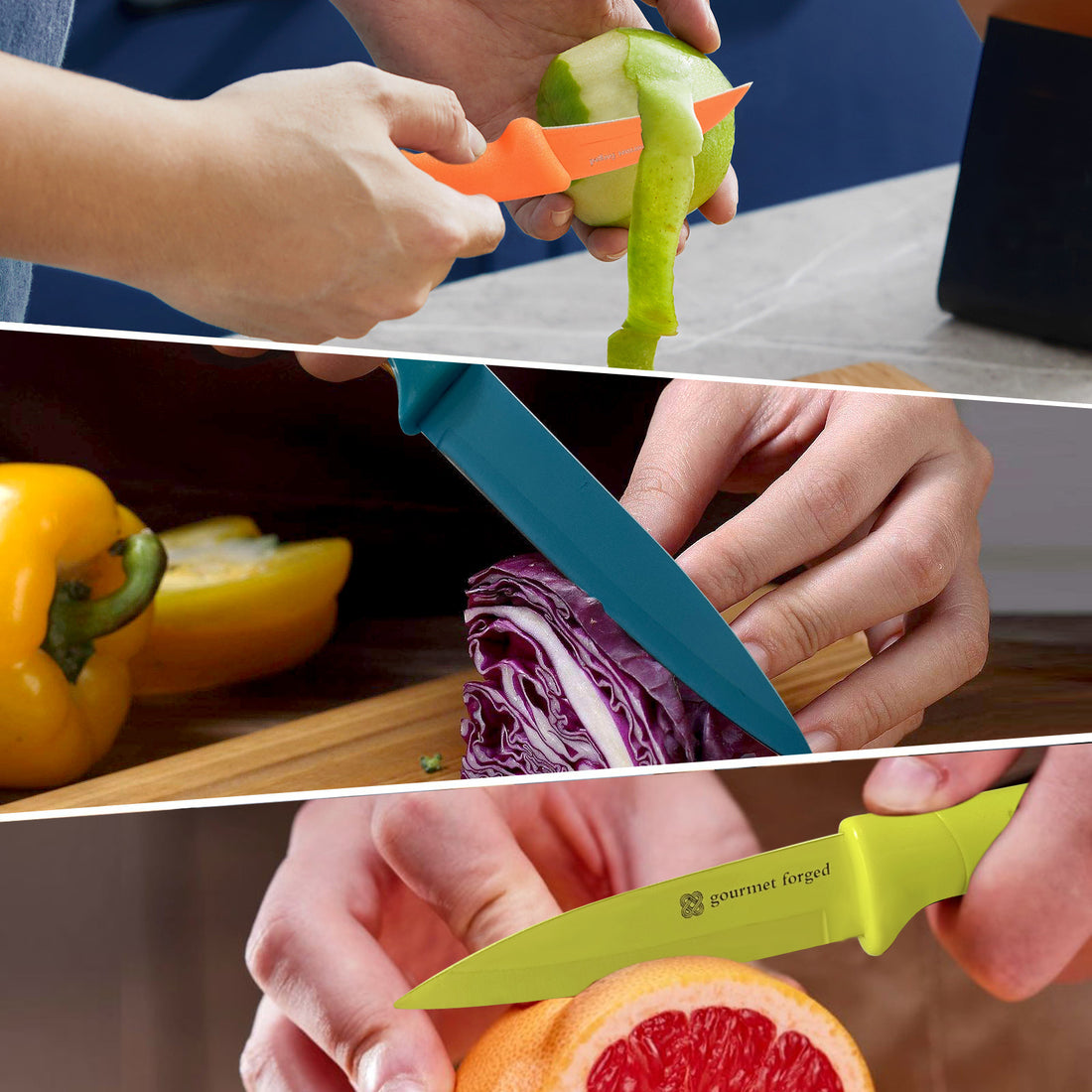Cooking is an art form, and every meal you prepare is a masterpiece in the making. Whether you're a novice cook or an experienced home chef, there's always room to enhance your skills and make everyday cooking a delightful experience. In this comprehensive guide, we'll explore essential cooking tips and techniques, with a focus on how to efficiently prep everyday ingredients like onions, bell peppers, carrots, and more. Get ready to elevate your culinary game to a whole new level.
The foundation of any great meal is fresh ingredients. Whenever possible, choose high-quality produce, meats, and dairy. The flavor and texture of your dishes will be significantly improved with fresh ingredients.
Salt and pepper are your best friends in the kitchen. Learning to season your dishes with the right amount of salt and a dash of pepper can elevate even the simplest of ingredients.
Balance is key in cooking. Experiment with the combination of sweet, sour, salty, and bitter flavors to create well-rounded dishes. A squeeze of citrus can brighten up a savory dish, while a pinch of sugar can tame excessive acidity.
Invest in a good set of knives. A chef's knife is versatile and should be your go-to tool. Additionally, a paring knife is excellent for more delicate tasks like peeling and trimming.
Master the "claw grip" to protect your fingers while chopping. Tuck your fingertips under your knuckles and use your knuckles as a guide for the knife. This technique helps prevent accidental cuts.
Onions are a staple in many recipes. To chop them efficiently, cut off both ends, slice in half vertically, peel, and make lengthwise cuts. Then, make horizontal cuts to dice.
Cut off the top and bottom of the pepper, remove the seeds, and flatten it. Slice the sides to create large, flat pieces. Now you can easily cut them into strips or dice.
Start by cutting off the ends. For sticks, cut the carrot in half crosswise and then into strips. For rounds, slice the carrot crosswise into your desired thickness.
This French term means "everything in its place." Before you start cooking, prepare and organize all your ingredients. This will save you time and reduce stress during the cooking process.
One-pot meals are not only convenient but also save on cleanup. Think stir-fries, pasta dishes, and hearty stews. Layer ingredients based on cooking times to ensure everything is perfectly cooked.
Learn to multitask in the kitchen. While something is simmering or baking, use that time to prep the next part of your meal. Just be sure not to leave anything unattended.
Don't be afraid to taste your food as it cooks. Adjust seasoning as needed. This simple step can make a significant difference in the final flavor.
Sautéing is a quick cooking method that uses high heat. Use a wide pan with shallow sides, and keep ingredients moving to prevent burning. It's ideal for vegetables, meats, and more.
Roasting intensifies flavors. Preheat your oven, use a roasting pan with a rack, and consider adding herbs and aromatics for extra flavor. It's perfect for meats, vegetables, and even fruits.
Braising involves searing meat in a hot pan and then slowly simmering it in a flavorful liquid. It's the key to tender, melt-in-your-mouth dishes like pot roasts and stews.
Cook pasta until it's "al dente" (firm to the bite). Save a cup of pasta water before draining; it's perfect for adjusting the sauce's consistency.
Consider the presentation of your dish. Use contrasting colors and textures to make your meals visually appealing. Garnishes like fresh herbs or a drizzle of sauce can also add a pop of flavor.
Just before serving, add a finishing touch. A sprinkle of sea salt, a dash of freshly ground pepper, or a drizzle of high-quality olive oil can elevate your dish to restaurant-quality.
Pay attention to portion sizes. Not only does this help with portion control, but it also ensures your dish looks well-balanced and appetizing.
Don't be afraid to experiment in the kitchen. Try new ingredients, techniques, and cuisines. Some of the most delightful dishes are born from creative experimentation.
Cooking is not just about nourishing your body; it's about connecting with others. Share your culinary creations with friends and family, and savor the joy of a shared meal.
With these tips and techniques, you're well on your way to becoming a confident everyday chef. Remember, cooking is an evolving skill, so keep experimenting, learning, and, most importantly, enjoying the wonderful journey of creating delicious meals in your own kitchen. Happy cooking!
